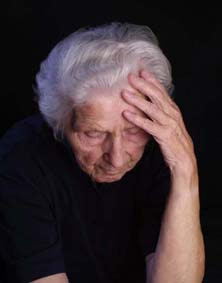 The following Nursing Management of Sleep Disorders in the Elderly
The following Nursing Management of Sleep Disorders in the Elderly1. Primary Prevention
- Fully asleep, but not excessive, in order to feel fresh and healthy the next day, restriction of sleep can amplify sleep, excessive time in bed seem related to fragmented sleep and shallow.
- Regular waking time in the morning, strengthens the circadian cycle and lead to a regular sleep onset.
- Stable amount of exercise each day can deepen sleep, but exercise is only performed occasionally can not improve sleep the following night.
- Noises can interfere with sleep, even if the sound does not wake a sleeping person and can not remember in the morning. Soundproof the bedroom can help sleep for people who have to sleep near the noise.
- Although the room is too warm can interfere with sleep, but there is no evidence to suggest that the room is too cold can help you sleep.
- Hunger interferes with sleep.
- Sleeping pills may sometimes be used to advantage, but that chronic use, are not effective in most patients with insomnia.
- Caffeine can interfere with sleep in the day, though at those who think so.
- Alcohol helps tense people fall asleep more easily to help, but sleep is then intermittent.
- People who feel angry and frustrated because they could not sleep, trying hard not to fall asleep but should turn on the lights and do other things differently.
- Chronic tobacco use can interfere with sleep.
- Mattress that allows the proper body alignment.
- Room temperature should be cold enough (less than 24C), so feel comfortable
- Caloric intake should be at least at bedtime.
- Moderate exercise during the day or in the evening is the recommended.
2. Secondary Prevention
Assessment by the nurse should include the following factors:
- How well the elderly are at home sleeping?
- When the elderly go to bed and wake up?
- Any habit that happens at bedtime?
- How many the amount of and exercises who done every day?
- Is the best position is preferred when in bed?
- What kind of environment is preferred treason?
- What is the temperature like?
- How much ventilation is desired?
- What activities are carried out several hours before bedtime?
- What are the medications sleeping or other medications which used when ahead of the sleep are routinely?
- How much time is spent in the hobby?
- Perceptions of life satisfaction and health status?
Diary of sleep is the best way of assessment for the elderly. This information provides an accurate record of trouble sleeping. To get a true picture of sleep disturbance experienced by the elderly at home or in health facilities, daily records were made 3 to 4 weeks. Records shall include the following factors:
- How often the help given to prescribe pain, unable to sleep or use the bathroom.
- When the person gets out of bed?
- How many times a person is awake or asleep at the time observed by the nurse or care giver.
- Confusion or disorientation occur.
- The use of sleeping pills.
- Estimated person gets up in the morning.
If there is a sleep disorder such as Sleep Apnea life threatening, the condition of patients requiring rehabilitation through measures such as removal of the tissue that blocks the mouth, which affect the airway. Today many sleep disorders centers are available throughout the country to help evaluate sleep disorders. These places are usually associated with clinical and medical research institutes or universities, complete with medical devices that can detect sophisticated electrical recording in the brain and airway obstruction. These data to help the best treatment for sleep difficulties and rehabilitation of the elderly.
No comments:
Post a Comment